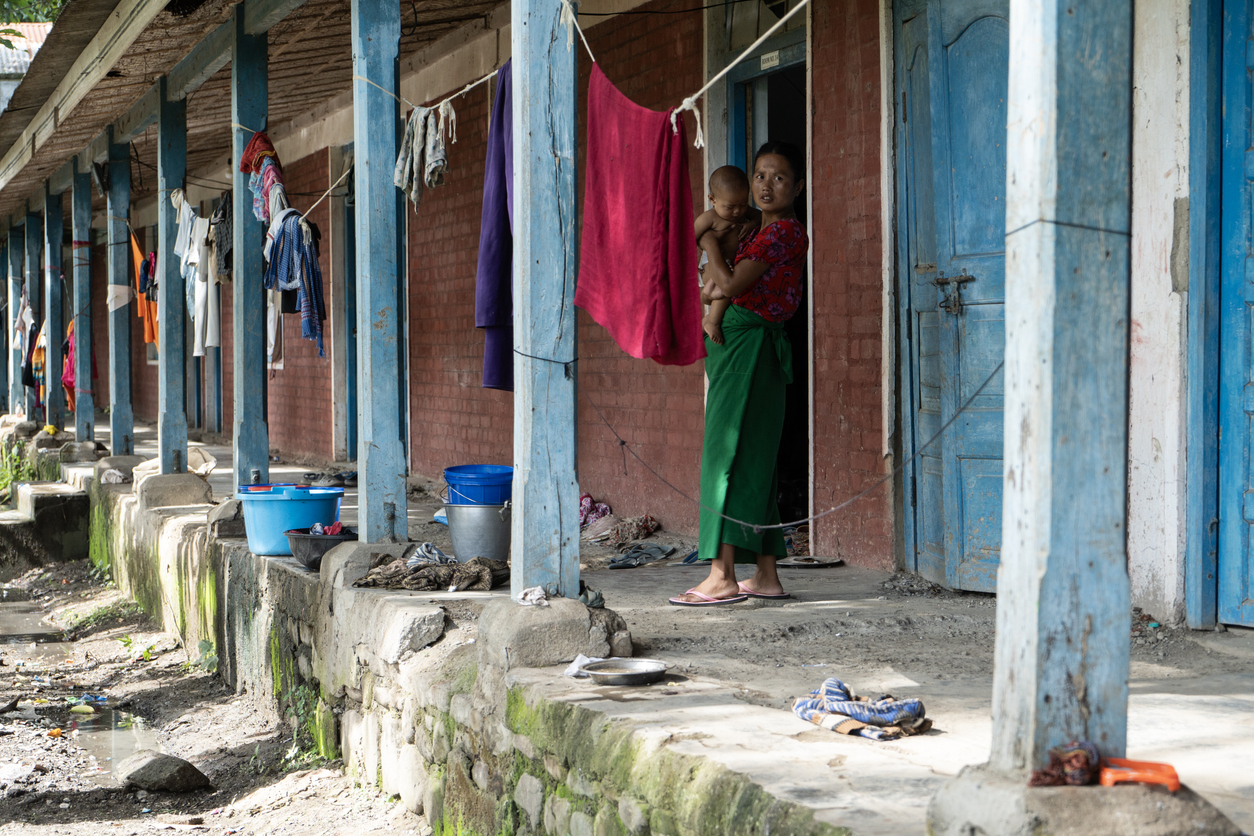On July 19, a video from Manipur, a state located in the northeast of India, went viral and caused nationwide outrage. The video showed a mob of men parading and groping two naked women on a road before one allegedly suffered sexual violence. This violence was a result of an ongoing ethnic conflict between the Kuki and Meitei of Manipur. It began in May 2023, with at least 130 people killed thus far and more than 60,000 people forced to migrate. The horrific incident in July forced Indian prime minister Narendra Modi to address ongoing human rights abuses, though it occurred almost two months after the first outbreak of violence.
The situation had been tense before May. The Meitei had been asking to be given the status of a “scheduled tribe,” an affirmative action measure that comes with the exclusive right to buy and own land in the state’s recognized tribal areas. The situation unraveled when the Manipur High Court ruled in favor of the Meitei demand. The Supreme Court of India stayed the high court’s order in May, but it was too late. The state has since then been divided into two factions, with the minority Kuki community alleging that the Bharatiya Janata Party (BJP) government—headed by chief minister N. Biren Singh, who is Meitei—has been supporting the violence against them.
The state’s failure to uphold international law
The Indian state has clearly failed in its obligation to grant the Kuki basic human rights and prevent discrimination. The central government led by Modi has been heavily criticized for its handling of the conflict. That the state, including the prime minister, had been silent on the issue until it became a point of national outrage suggests that the government either does not know how to address this conflict or is indifferent to it. In addition, the majoritarian state headed by chief minister Singh has not only been ineffective, but it also stands accused of using the state machinery to further support the Meitei majority.
At the international level, there are a number of conventions and declarations regarding the protection of Indigenous communities in different aspects of life. The most important is the United Nations Declaration on the Rights of Indigenous Peoples (UNDRIP), which was adopted by the United Nations General Assembly (UNGA) in 2007 and has been endorsed by more than 160 countries, including India. Article 1 of UNDRIP grants to Indigenous peoples every human right and fundamental freedom available under the UN Charter and the Universal Declaration of Human Rights (UDHR).
Article 19 of the UNDRIP outlines the obligation of states to consult and cooperate in good faith with Indigenous peoples in order to obtain their consent before adopting and implementing any measures that may affect them. This article was also breached by the Indian state, as the state includes the judiciary according to Article 4 of ARSIWA. It is notable that the High Court of Manipur did not address the Kuki community’s representation regarding the tribal status given to the Meitei.
Further, it is now being reported that an alleged first attack on women of the Meitei tribe by the Kuki tribe was a mere rumor. Thus, the Indian state also failed in its obligation to provide an effective mechanism for the prevention of any form of propaganda designed to promote or incite ethnic discrimination, as established in Article 8(2) of UNDRIP.
Conclusion
The central government of India, the state government of Manipur, and the judiciary have failed miserably to maintain peace in the region. More broadly, the whole state has been ineffective in protecting the rights granted to Indigenous communities by UNDRIP. These failures affect the credibility of the Indian state, as India claims to be a strong supporter of the protection of the rights of Indigenous peoples. This ongoing human rights crisis will surely damage India’s efforts to project itself as an up-and-coming superpower and could also hamper the perception that Prime Minister Modi has elevated India’s status on the global stage. It should also concern the ruling BJP, as national elections are due to take place in April 2024.
In response to the ongoing conflict, the central government should impose presidential rule, as there are genuine concerns that the state government is not just ineffective but biased as well. The central government, in order to bring peace, should also consider deploying more paramilitary troops comprising regiments from other states in order to ensure that law enforcers are neutral in their approach, as another concern is that local forces are also divided by ethnic identities. Making sure that decision makers—as well as enforcers—are not divided by ethnic differences will help control the violence in Manipur. Mediation by neutral third parties will then be necessary to provide a way forward. It is high time that India stands by its commitment to uphold international law and takes the necessary steps to resolve this brutal human rights crisis.

